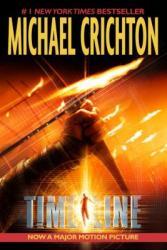
It’s been a while since I read any Michael Crichton. I thoroughly enjoyed Jurassic Park —and to a lesser extent, The Lost World . I enjoyed the action and the science that went into creating these stories, helping to educate as well as entertain (kind of like my own writing style, if I do say so myself :D). For Timeline, the science in question is more quantum in nature, but I felt the explanations given were sufficient to arrive at a time-travel narrative, even if it did require a small amount of scientific hand-waving. Also, a lot of my perceptions about the dark ages were completely flipped around through this book’s meticulous details.
Even though I liked the scientific and historical sections of this book, there were undoubtedly some weaknesses I cannot overlook. First of all, Crichton seems to like hammering home the idea that science as an entertainment business is a bad idea (a la Jurassic Park) but the corporate sub-plot seemed a little less thought out and didn’t play too much into the grand scheme of things. As for the main plot itself, it seemed distracted most of the time, rarely remembering why these characters were sent back in time in the first place. Some of the characters weren’t even that compelling either, which didn’t help.
I wanted to like this book more, but by the end of the narrative, I got the sense that this was more akin to an action-movie screenplay or video game plot than an actual book. The countdown to the climax was a little hard to keep track of earlier in the book, and it didn’t provide the needed tension early on that it did near the end. Plus, the characters were usually the ones calling out the timestamps anyway, making it mostly redundant. In the end, there were some neat ideas regarding quantum physics, time travel, and history that makes Timeline an educational read, even if it is only once.
A Crichton book heavy in action, but light on plot, I give Timeline 3.0 stars out of 5.
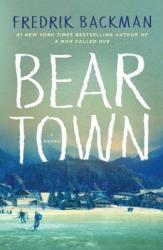
Kind of a letdown. I have a tendency to hold sequels to their predecessor's excellence, which almost always results in disappointment (Yeah I know, the first book is always better, but I still have my hopes). The previous books written by this author were all amazing, I heartily recommend them. But Beartown is Backman's newest release, and not as good as the others. Still pretty good, but but excellent like the others. Essentially it's about a dying, small town hidden deep in isolated and cold mountains. But it thrives on hockey, so the town boys are constantly pushed to do better, be better. It follows the intertwined stories of multiple characters. Some of the hockey players, from the heavily privileged to those who have to do everything themselves. Some of the parents and coaches, who are struggling to keep it alive and thriving, but at the same time not break the boys. All in all, it was interesting and I don't regret reading it, but I don't think I'll reread it anytime soon.
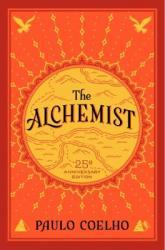
To be honest, I only really bought this book because it came heavily recommended from the manager of the bookstore I was at. He claimed it was a book you could read over and over again, and get a new message from every time. But about a quarter of the way through, I admitted to myself it was an average book. It didn't have spectacular or eye-opening writing, and the plot was okay I guess. Essentially, it's about a young shepherd who meets a 'king' in a marketplace in Spain. The king convinces him that there is a Personal Legend everyone has in this world, and the universe conspires to help you achieve it. All throughout this book, Santiago (the shepherd) follows omens, prophecies, and recurring dreams in the hopes of finding a treasure by the Egyptian pyramids. On the way, he helps a crystal merchant, meets an English man who aspires to be an alchemist, the love of his life, and eventually the alchemist himself. In the end, he finds himself, the woman he loves, the treasure of a forgotten pirate (cliche! Boo!), and he accomplishes his Personal Legend. It was okay, but really generic writing and not a very interesting plot. Who knows? Maybe the message will change when I read it again. But I rather doubt it.
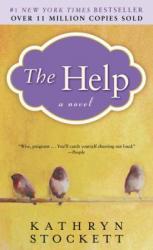
After watching the critically acclaimed movie I could not help but read Kathryn Stocket’s book, The Help. Watching the movie before reading the book is something I rarely do, and I knew the book would be better in this case, but I underestimated just how good the book would be.
The Help takes place in the 1960s and is a about a girl named Skeeter who wants to write a book about the African Americans who help in white households. However, different chapters are narrated by different characters so each character has somewhat their own story within the story.
This may be a bold statement, but The Help is my favorite book I have ever read. As an avid reader, I loved how long the book was. The book did not seem to end and the characters were so interesting, I didn’t want it to. Stocket’s writing abilities are phenomenal and the fact that each character was so distinctly different from one another was very impressive. I enjoyed the different chapters being narrated by different characters so much since I got to see what each character was thinking and feeling. I also loved the descriptions in the book. It wasn’t so descriptive that it got boring but
it also wasn’t so little that you couldn’t picture the situation. It was the perfect amount and it added to the reality of the story so well.
Overall I would highly recommend this book, especially for long summer reading. The only thing that I can think of that wasn’t great about the book were two specific chapters. They weren’t awful, I just felt that the book could have easily done without them. But obviously they didn’t really take away from the story and I still adore this book.
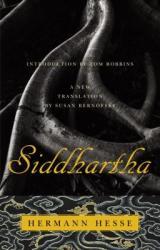
Siddhartha is a tale of a young man who lives many different lives, from a Brahmin's son to an ascetic to a wealthy merchant. He does this all to find inner peace, or nirvana. I liked this book because of its style of narration. I have learned about Buddhism before from textbooks, but this style of information is so much more interesting. Siddhartha has many character flaws, but he eventually manages to wash them away in the cycle of time. Reading this book is a very introspective experience that everyone should have.

The Great Gatsby is a classic set in the Roaring Twenties. It exposes the flaws in the very ideals that built America--wealth, beauty, and the American Dream. The tone of this book is despondent, and every character is tragic in one way or another. Indeed, this is a book of many emotions, some even gut-wrenching. My favorite aspect of this book is how Fitzgerald uses fiction to talk about very real issues. I strongly recommend this book.
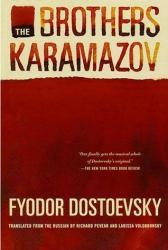
I enjoyed listening to this book. The narrator was fantastic. I found I had to look up plot summaries to really get what was going on (thank you, wikipedia). The nicknames alone were confusing. I suppose that's to be expected with a novel this complicated. It seemed like every character in the book save Alyosha were selfish, immoral, and in a few instances downright depraved. This made it somewhat of a chore to listen to in some parts of the book as I couldn't root for anyone. But I enjoyed the epilogue, which ended on a positive note.
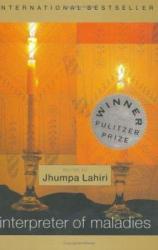
Interpreter of Maladies is a collection of short stories that reveal the immense cultural differences between America and India. Jhumpa Lahiri writes with such elegance that each individual story evokes a wide variety of emotions. My favorite part of this book is that all the stories come together to form a well-developed image of life in India compared to life in America. I also like that it does not portray one lifestyle as better than the other; rather, it just highlights the differences. Even in short stories, Jhumpa Lahiri has the ability of putting the reader in another person's shoes and immersing them in different cultures. Because of the beautiful writing, I would recommend this book to anyone interested in different cultures.
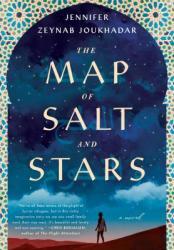
You know you have come across an extraordinary book when you find yourself thinking about its beautiful story and characters several months after you have first read it. I first read this beautiful novel back in February when I received an ARC of it from the publisher, and today I still think of the book and its beautiful characters of Nour and her family as they flee their homeland, Syria in 2011, and become refugees venturing across several middle eastern countries as the situation becomes more and more unstable and the violence ever more brutal. Shifting between past and present, in a second duel story-line that takes places more than 800 years earlier in Medieval Syria, Jennifer Zeynab also tells a harrowing tale of a girl named Rawiya, her desire to see the world, her very real clash with supernatural myth, and her adventures with a famous cartographer.
Jennifer Joukhadar through the fictional characters of Nour and her family, discusses a relevant and timely topic of the experience of many refugees that flee persecution and violence. She also does it in a way, that is, for the most part, unbiased choosing to focus instead on the everyday human experience of a family, instead of political ideology, which is very refreshing in today’s global climate.
The atmospheric and beautiful prose are a delight to read as we get to experience the world the way Nour and Rawiya saw it through beauty, sorrow, color and light. The character development of Nour, as her personal identity and her idea of what home is shifts as her journey progresses through time and years, is especially strong as she reflects on all she has lost and gained. Though the character development of Rawiya, shows a progression and change as her journeys around the world challenges and changes her perspective on life, I do not think it was as strong as the story of Nour and her family. And though Rawiya’s story-line was beautiful and entertaining, I felt it sometimes took away, from what I think of, as the central story-line of Nour and her family’s refugee experience.
That issue aside, this novel which is rich with historical and mythical detail, was in my opinion, several steps above the rest as it tackled a relevant, continuous, and difficult issue with beauty, grace and a truly memorable story. This novel, it has been said, does for Syrian Refugees what the Kite Runner did for Afghan refugees and in my opinion, it is a fair and correct comparison.
Thank you to the publisher Touchstone Books for an ARC of this beautiful novel for review! If you have not yet, please put this book on your holds list, it is so beautiful!
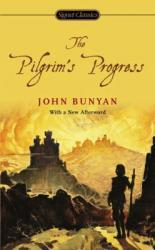
I distinctly remember my parents reading this book to me when I was a child. Decades later, I decided to re-visit it and read it for myself. I don’t know if it was an abridged version or a simplified re-telling appropriate for kids, but this was not the book I remember from my childhood. Sure, the action bits were still there, like the fight with Apollyon, the Slough of Despair, and the suicide discussion in Vanity Fair, but there was way more dialogue than what I recalled of the story. Not to mention the verbiage/wording seemed more along the lines of a King James Bible than of a fantasy setting.
Sure, I’ll concede that, for 1678, this was a groundbreaking piece of fiction, and perhaps the first piece of successful fantasy ever written, but it hasn’t aged entirely as well over the years when compared to its source material. There are undoubtedly little lessons and morals present here, but they are often buried between and among diatribes from the primary and supporting characters. Furthermore, I was only loosely aware that there was a “Part 2” to the main story of Christian’s journey. After reading the journey of Christiana and her children following in Christian’s footsteps, I can see why I never heard that part when my parents read it to me: there wasn’t much new material in it.
When I picked up this book to read for myself, I was trying to confirm that I could use it as a framework for my Slumberealm trilogy. After reading through it, I realized the apparent references to concepts, ideas, and people is more indicative of the style I used for The Fluxion Trilogy . There’s not a lot of subtlety in the character names or destinations present in The Pilgrim’s Progress. I suppose that’s part of the charm of such an allegory, though.
A groundbreaking piece of fantasy that hasn’t aged well over time, I give The Pilgrim’s Progress 2.5 stars out of 5.
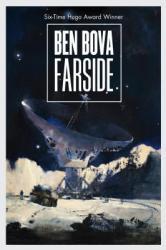
I had never heard of this author before picking up this audiobook to read—I just thought the title and cover looked neat—but apparently he’s been writing science fiction for a few decades now. It shows. While I’m not entirely certain that this 20th part in the “Grand Tour” series connects to any other parts written before it, Farside does stand by itself as a story. Unfortunately, the story’s not that good. It almost seems as though the “old rules” of golden-age sci-fi live on through this author, which allowed for this misogynistic piece of fiction to be written in the new millennium.
Much like Fire with Fire , there seems to be some sort of checklist that authors trying to imitate the pulpy origins of sci-fi are using to create their modern works. These tired tropes need to stop. Especially the tropes that have to do with the blatant sexism. None of the sex in this book had any grounding in reality or common sense: it all seemed to happen merely to check an item off a list. If these stories are allegedly set in the future, then why aren’t the characters acting “more woke” than the people who exist today?
While I did appreciate the interesting scientific ideas presented in this book, the “mystery” that evolved out of it was confusing at best. It didn’t seem clear why the antagonist—who seemed to almost appear out of nowhere—did what they did, thus leading to the peril of the people on the moon. I also found the repetition in this book to be slightly annoying. When I kept listening to the audiobook and wondered if it had somehow skipped back to a previous section when a fundamental concept was repeated, almost verbatim, then there’s obviously a problem with the exposition in the writing.
An artifact of the antiquated and sexist “rules” of golden-age sci-fi, I give Farside 2.0 stars out of 5.
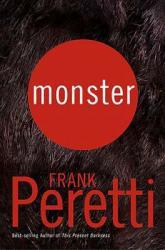
One of the challenges of the Christian author is being able to craft stories and characters that share their beliefs, but without being too heavy-handed about it. In Frank Peretti’s Monster, the author mostly succeeds, providing characters that can easily be identified as Christian, but also exhibiting the traits of normal humans instead of straight-up caricatures. The main plot of this book was only tangentially related to an argument against evolution, so that was also a plus. Still, the way the book was put together, it was clear where the author’s bias was.
While some people might not appreciate the Christian undertones in this thriller, my qualms with it are more structural. Following a few different characters after a woman is abducted by an unnatural beast, the mystery of the disappearances and killings unravels to reveal a semi-plausible explanation. Unfortunately, the man and wife pair that are introduced at the start of the book are more annoying than likable. Ergo, when I followed the woman’s ordeal in captivity, I could not sympathize with her plight because her actions and reactions were so off-putting at first.
In the end, Monster is still a passable—if perhaps boilerplate—thriller. I did appreciate the realistic explanation for the fantastical elements of the story. I also found it somewhat refreshing to show a character who opposed the common scientific view of evolution just because everyone else thought it was true. For an audiobook, the author’s narration was filled with just the right amount of emphasis, which is to be expected. However, with so many short scenes and quick cuts between them, his reading could have stood to have a little bit longer pauses between sections in order to give the listener a better sense that the scene was changing from one character to another.
A passable thriller with semi-subtle Christian undertones, I give Monster 3.0 stars out of 5.
Max is a service dog who's owner Kyle Wincott gets killed in a mission when he was in the marine corps. The only person Max can get along with is Kyles little Brother, a 14 year old boy named Justin. He get's help training max with the help of a young lady named Carmen, who is a cousin of Chuy who is Justin's best friend. Chuy has another cousin in this book who is a gangster, and his name is Emilio. Justin bootlegs video games for Emilio to receive money. Justin overhears a conversation on the phone between Emilio and Tyler, who was Kyle's best friend. He decides to track down Emilio and then when he finds out what they were talking about he tries to stop it. He uses Max's expertise to help him. This was a great read I would Highly recommend this book for dog lovers.
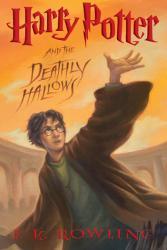
Harry Potter and The Deathly Hallows was a great book that I loved! In this book Harry, Ron, and Hermione all set of on a mission that Professor Dumbledore left Harry at the end of his 6th year at Hogwarts; to find and destroy the Horcrux's that Lord Voldermort has made to make himself immortal, or as close as he can get to it. As harry and his friends set out they discover that this will not be as easy as they had thought. As they find out how the Ministry of Magic has been infiltrated by he-who-must-not-be-named their mission just becomes more important. Can Harry and his friends do it and restore the magical community to the way it used to be?
7th grade
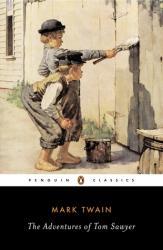
Mark Twain's beloved nineteenth-century novel is a thrill. Tom Sawyer is the story of a boy that everyone can relate to. From being bored in Sunday school to playing pranks on the teacher to running away and playing pirates, Tom Sawyer is full of boyhood adventures. The Adventures of Tom Sawyer is filled with comedy, warmth, and youthful innocence. However, below the surface, The Adventures of Tom Sawyer is about young boys facing the cruel adult world. This novel is truly a classic and can be enjoyed by all ages, especially upper elementary, middle schoolers, and high schoolers.
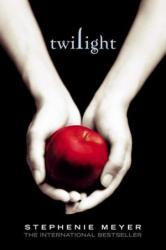
Twilight Was a great book! This book is about a girl named Bella who moves to the gloomy small town Forks, she just wants to go back to her mom and the sun. She has her first day of school ahead of her and dose not expect to find anything that she likes, but then she meets Edward Cullen. He and his siblings are strange. they seem different, even flawless. The moment Bella walks into her bio class and is forced to sit next tho Edward she knows that he dose not like her, or as she thinks. As Bella and Edward draw closer and she discovers his greatest secrete, a secrete that could kill her. Bella dose not know it but Edward begins to love her. how far will they go for love?
Grade 7 reviewer.
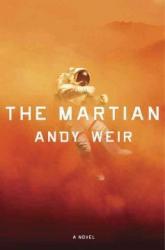
The Martian was a great book, and I loved it! This book is about a man (Mark) that goes to Mars. when a sand storm hit the HAB hard Mark and his crew decide it is to dangerous to stay or the MAV will tip. When the crew make it to the MAV they realize that mark is not with them. They want to find him but it is just not safe. Mark is stuck on Mars with no means of contacting Earth. Can he survive?
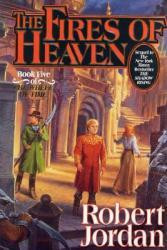
The Fires of Heaven is the fifth installment in the fourteen book series, The Wheel of Time. It is simply incredible how Robert Jordan keeps writing these amazing novels. The Fires of Heaven is certainly not as good as the first three books, but it is still a great book. It contains intrigue, suspense, and one of the longest battle sequences so far. All the characters are still unique and interesting (especially Mat), and the storylines are still fresh. I would recommend this book to anyone currently reading the Wheel of Time series, and would recommend the series to any fans of high fantasy.
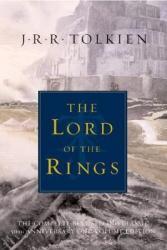
A stout story, a rich song, a tale for all times. Tolkien heard the gorgeous music of narrative, with all its valleys and hilltops, with all the grit of the fight, all the glory of overcoming, all the long, drawnout parts of day-in and day-out small faithfulness. He heard a musical narrative and he composed a symphony. But like all great masterpieces, one’s affections and tastes must be enlarged and strengthened to enjoy wine this strong. Such a stout story is not for the faint in heart. In an era where our literary sensibilities are cheapened by bland paperback fiction, reality TV, inane tweets, texts, and Facebook posts, we are a society easily pleased by cultural fast food, and we often can’t appreciate with the robustness of a story told this well. There are answers in this story to questions we’ve never thought to ask. This story explores places in the heart we’ve never thought to search, depths of the human soul we’ve never considered worth pluming. If we don’t resonate with this story it is because there is much that the author wants to tell us that we are not yet ready to hear.
Search the world over, and I don’t believe you’ll find another piece of fiction as epic, as moving, as heart-transforming, as the Lord of the Rings Trilogy. What sets the literary genius of Tolkien above most other authors of fiction is his ability to make his imaginary world shine with such brilliance that the affections of the heart will come to love its shores, its stories, its struggle to stay in the light. Story is one thing that cannot be faked by a shallow writer. Either an author has within him an tale of inspiring beauty, of struggle, of overcoming, of fighting and conquering, of living and dying for what one believes in—or he does not—and what comes out instead is flat, bland, one-dimensional.
But if one is willing to be a patient learner, one can have one’s mind and heart expanded by being a slow and thoughtful reader. If your heart does not sing by the end of the book, if you do not have a new resolve to overcome the evil in your own heart, if you are not transformed to live for truth and beauty by the end, then I wonder that you have a pulse.
The only precaution I give you is the peculiar feeling of sharp disappointment that will pang you as you read the last line of last volume, knowing that the book is over and there will never be another like it. The only solace I allowed myself was the thought that soon my children will be at an age to appreciate it and I can relive the volumes through their imaginations. Be prepared to mourn for the series' finitude even as you enjoy every brilliant page.
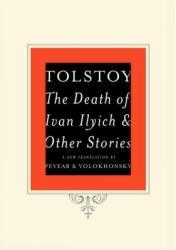
“There is a way that seems right to a man, but in the end leads to death.”
This short story was a moving reminder to me of the potential that a narrative has to move the soul to understand things that propositional truths have failed to convey.
All Ivan’s life, the realization that he would someday die was something that he believed theoretically, but he could never quite make the fact real to himself. Other people would die, yes, but the reality that he would someday have to die, and also perhaps suffer some before death took place, had no reality to him, no real meaning, no authenticity to his mind.
Until…one day he found that he was in fact dying.
This came as a deranged shock. He had never truly considered the matter seriously. What was happening seemed strange, foreign, out-of-place. He continually tried to deny the fact that he was dying, but a gnawing pain in his side, that daily grew stronger despite being seen by all the top doctors, was his constant reminder that death, his very own death, was real and imminent.
Much of this short book relates mundane details of Ivan’s life: how he met his wife, his occupation, the people he spent time with, and what gave him joy in life. But rather than these details being tedious, they fascinated me because they showed how the small, seemingly insignificant choices of a man’s life are what make a man. And every line of this story is full of meaning as it leads up to a definite point, like any great work of fiction ought to do.
“There is a way that seems right to a man, but in the end leads to death.” Ivan’s story draws one in because Ivan is not a “bad person,”
by society’s standards. He keeps only the best society, he follows all the rules of decorum, he does not commit crimes or murder or steal. His conscience never bothers him. He is faithful to his wife, provides for his children, and makes sure that everything in life runs smoothly and quietly.
He rarely raises his voice, and he suppresses his anger whenever his wife makes a scene. He sees himself as the perfect gentleman.
But pain has a way of bringing to the surface what lies deep within a man’s heart. And it is not until the pain reaches a fever pitch, that Ivan, for the first time in his entire life, is able to see clearly what has been true his entire life.
I highly recommend this short book!


